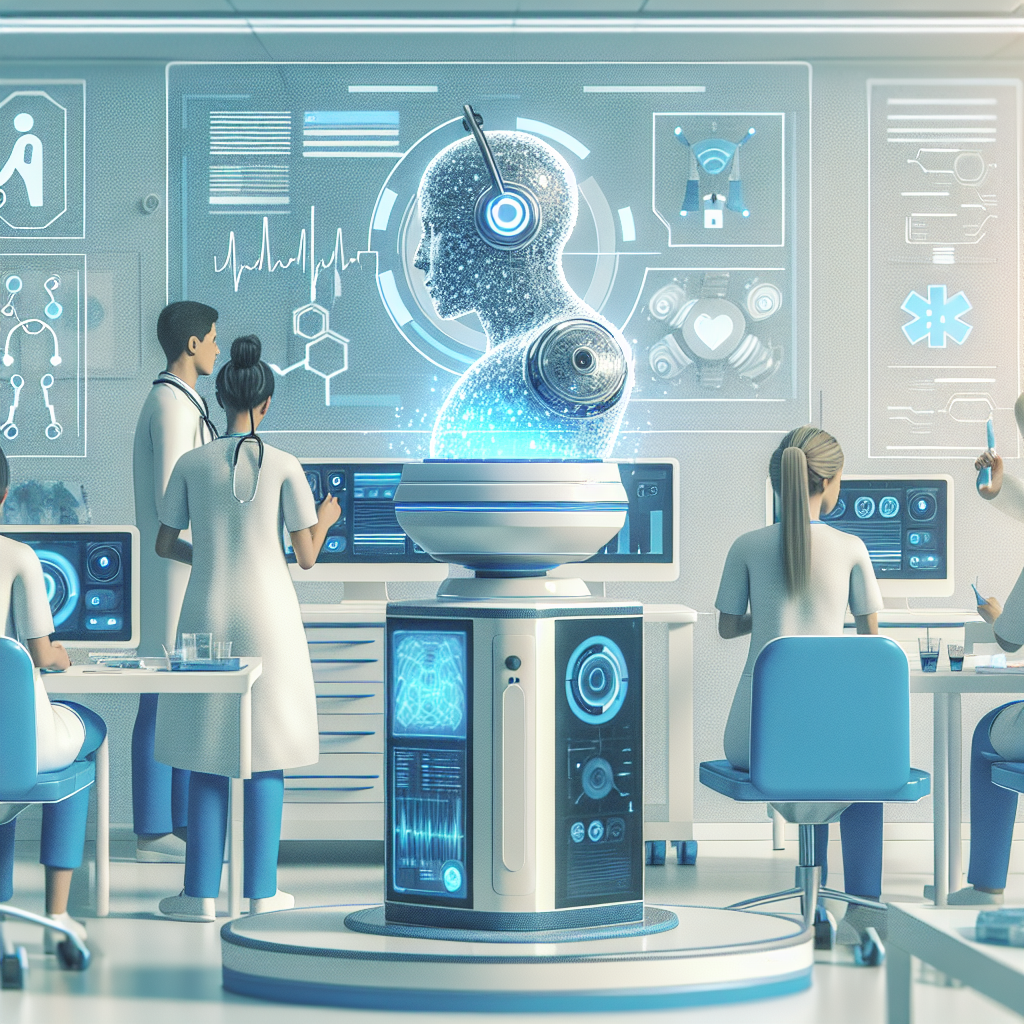The Future of AI Integration in Healthcare Predictive Modeling
Artificial Intelligence (AI) has revolutionized many industries in recent years, and healthcare is no exception. With the vast amount of data generated in the healthcare industry, AI has the potential to transform the way diseases are diagnosed, treated, and even prevented. One of the most promising applications of AI in healthcare is predictive modeling, which uses algorithms to analyze data and make predictions about future health outcomes.
Predictive modeling in healthcare involves using AI to analyze large datasets to identify patterns and trends that can help predict a patient’s risk of developing a certain disease or condition. This information can then be used to provide personalized and proactive care to patients, ultimately leading to better health outcomes and more efficient healthcare delivery.
The potential benefits of AI integration in healthcare predictive modeling are vast. For one, AI can help healthcare providers identify high-risk patients who may require more intensive monitoring or intervention. By predicting which patients are most likely to develop certain conditions, healthcare providers can intervene earlier, potentially preventing the onset of disease or reducing its severity.
Additionally, AI can help healthcare providers streamline their operations and improve efficiency. By analyzing data on patient outcomes, resource utilization, and other factors, AI can help healthcare organizations optimize their workflows and allocate resources more effectively. This can lead to cost savings, improved patient satisfaction, and better overall healthcare outcomes.
Despite the many potential benefits of AI integration in healthcare predictive modeling, there are also challenges and concerns that must be addressed. One of the main challenges is ensuring the accuracy and reliability of AI algorithms. Healthcare data is often complex and messy, and AI algorithms must be carefully trained and validated to ensure that they are making accurate predictions. Additionally, there are concerns about data privacy and security, as healthcare data is highly sensitive and must be protected from unauthorized access.
Another challenge is the potential for bias in AI algorithms. AI algorithms are only as good as the data they are trained on, and if the data used to train an algorithm is biased or incomplete, the algorithm may produce biased results. This can lead to disparities in healthcare outcomes and exacerbate existing inequalities in the healthcare system.
Despite these challenges, the future of AI integration in healthcare predictive modeling looks promising. As AI technology continues to advance and improve, healthcare providers will have access to more powerful tools for predicting and preventing disease. By harnessing the power of AI, healthcare organizations can improve patient outcomes, reduce costs, and ultimately provide better care to their patients.
FAQs:
Q: How is AI being used in predictive modeling in healthcare?
A: AI is being used in predictive modeling in healthcare to analyze large datasets and identify patterns and trends that can help predict a patient’s risk of developing a certain disease or condition. This information can then be used to provide personalized and proactive care to patients.
Q: What are the potential benefits of AI integration in healthcare predictive modeling?
A: The potential benefits of AI integration in healthcare predictive modeling are vast. AI can help healthcare providers identify high-risk patients, streamline operations, improve efficiency, and ultimately provide better care to patients.
Q: What are the challenges of AI integration in healthcare predictive modeling?
A: Some of the main challenges of AI integration in healthcare predictive modeling include ensuring the accuracy and reliability of AI algorithms, addressing concerns about data privacy and security, and mitigating the potential for bias in AI algorithms.
Q: What does the future hold for AI integration in healthcare predictive modeling?
A: The future of AI integration in healthcare predictive modeling looks promising. As AI technology continues to advance, healthcare providers will have access to more powerful tools for predicting and preventing disease, ultimately leading to better health outcomes for patients.

